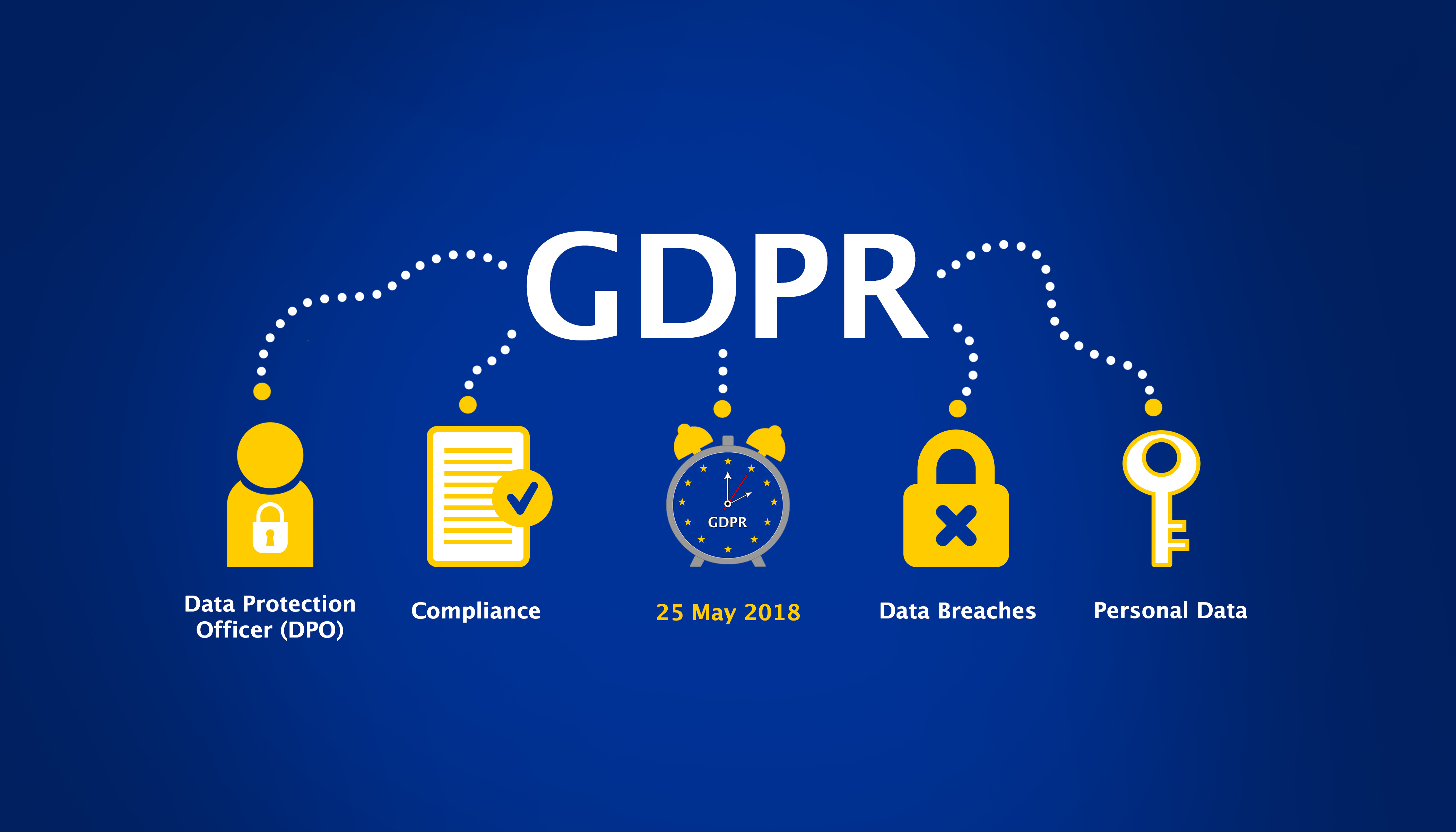Impact of GDPR on CDN Service Providers

The General Data Protection Regulation (GDPR) is a comprehensive data privacy law enacted by the European Union that has significant implications for Content Delivery Networks (CDNs). Here’s how GDPR affects CDN service providers:

1. Applicability:

- GDPR applies to any organization that processes personal data of individuals located in the EU, regardless of where the organization is based.
- CDNs that store or process EU user data, such as IP addresses, browsing history, and device identifiers, are subject to GDPR.
2. Data Subject Rights:
- GDPR grants EU citizens various rights over their personal data, including the:
- Right to be informed about data processing
- Right to access data
- Right to rectification and erasure
- Right to object to data processing
- CDNs must implement mechanisms to allow users to exercise these rights.
3. Consent Requirements:
- GDPR generally requires explicit consent from users before processing their personal data.
- CDNs must obtain valid consent from EU users before collecting and storing their data. This consent must be informed, specific, and freely given.
4. Data Breach Notification:
- CDNs must notify the relevant authorities and affected individuals within 72 hours of discovering a data breach that poses a risk to users’ rights and freedoms.
- They must also document and investigate the breach promptly.
5. Data Protection Officer (DPO):
- Organizations with more than 250 employees or that process sensitive personal data must appoint a DPO.
- CDNs that meet these criteria may need to appoint a DPO responsible for overseeing GDPR compliance.
6. Data Transfer Restrictions:
- GDPR restricts the transfer of personal data outside the EU unless appropriate safeguards are in place.
- CDNs that transfer EU user data to servers located outside the EU must comply with these restrictions.
7. Record Keeping and Audits:
- CDNs must maintain records of their data processing activities and undergo regular audits to demonstrate compliance with GDPR.
- They must be able to provide evidence of consent, data breach notifications, and other compliance measures.
8. Fines and Penalties:
- Failure to comply with GDPR can result in significant fines of up to €20 million or 4% of the annual global turnover of the organization.
Compliance Strategies for CDNs:
To comply with GDPR, CDN service providers should consider the following strategies:
- Conduct a data audit to identify and map personal data processed.
- Implement clear and transparent privacy policies.
- Obtain valid consent from EU users.
- Establish data breach prevention and response plans.
- Appoint a DPO if necessary.
- Implement data transfer safeguards for cross-border data flows.
- Maintain accurate records and conduct regular audits.
- Train employees on GDPR requirements.## The Impact of GDPR on CDN Service Providers
Executive Summary
The General Data Protection Regulation (GDPR) is a comprehensive EU data protection law that has a significant impact on CDN service providers. The GDPR imposes strict requirements on the collection, processing, and transfer of personal data, and CDN service providers must comply with these requirements in order to avoid penalties.
Introduction
CDN service providers play a vital role in the delivery of online content. They cache content on servers located around the world, which reduces latency and improves the user experience. However, CDN service providers also collect and process personal data, such as IP addresses and browsing history. This data can be used to track users’ online activity and create detailed profiles of their interests.
The GDPR imposes strict requirements on the collection, processing, and transfer of personal data. CDN service providers must comply with these requirements in order to avoid penalties. The GDPR also gives individuals the right to access, rectify, and erase their personal data.
FAQs
- What is the GDPR?
The GDPR is a comprehensive EU data protection law that imposes strict requirements on the collection, processing, and transfer of personal data. - How does the GDPR affect CDN service providers?
CDN service providers must comply with the GDPR’s requirements in order to avoid penalties. The GDPR also gives individuals the right to access, rectify, and erase their personal data. - What are the key requirements of the GDPR for CDN service providers?
CDN service providers must obtain consent from individuals before collecting their personal data. They must also provide individuals with clear and concise information about how their personal data will be used. CDN service providers must also take steps to protect personal data from unauthorized access and use.
Top 5 Subtopics
1. Data Collection and Processing
The GDPR imposes strict requirements on the collection and processing of personal data. CDN service providers must obtain consent from individuals before collecting their personal data. They must also provide individuals with clear and concise information about how their personal data will be used. CDN service providers must also take steps to ensure that personal data is accurate and up-to-date.
- Consent – CDN service providers must obtain consent from individuals before collecting their personal data. Consent must be freely given, specific, informed, and unambiguous.
- Transparency – CDN service providers must provide individuals with clear and concise information about how their personal data will be used. This information must be provided in a way that is easy to understand and accessible.
- Accuracy and Up-to-Dateness – CDN service providers must take steps to ensure that personal data is accurate and up-to-date. This may involve periodically verifying personal data with individuals.
2. Data Security
The GDPR requires CDN service providers to take appropriate measures to protect personal data from unauthorized access and use. These measures may include encryption, access controls, and regular security audits. CDN service providers must also have a plan in place for responding to data breaches.
- Encryption – CDN service providers should encrypt personal data at rest and in transit. Encryption helps to protect personal data from unauthorized access and use.
- Access Controls – CDN service providers should implement access controls to limit access to personal data to authorized personnel only. Access controls may include passwords, biometrics, and role-based access control.
- Security Audits – CDN service providers should regularly conduct security audits to identify and fix vulnerabilities. Security audits help to ensure that personal data is protected from unauthorized access and use.
3. Data Transfers
The GDPR restricts the transfer of personal data to countries outside the EU. CDN service providers must take steps to ensure that personal data is only transferred to countries that provide adequate protection for personal data.
- Adequacy Decisions – The European Commission has issued adequacy decisions for certain countries, which means that these countries are considered to provide adequate protection for personal data.
- Standard Contractual Clauses – CDN service providers can also use standard contractual clauses to transfer personal data to countries that do not have adequacy decisions. Standard contractual clauses are legally binding agreements that require the recipient of personal data to protect the data in accordance with the GDPR.
- Binding Corporate Rules – Multinational companies can also use binding corporate rules to transfer personal data within the company. Binding corporate rules are internal policies that are designed to protect personal data in accordance with the GDPR.
4. Individual Rights
The GDPR gives individuals the right to access, rectify, and erase their personal data. CDN service providers must provide individuals with a way to exercise these rights.
- Right of Access – Individuals have the right to access their personal data and to receive a copy of their personal data in a structured, commonly used, and machine-readable format.
- Right to Rectification – Individuals have the right to rectify inaccurate or incomplete personal data.
- Right to Erasure – Individuals have the right to have their personal data erased in certain circumstances, such as when the personal data is no longer necessary for the purposes for which it was collected.
5. Data Protection Officer
The GDPR requires certain organizations to appoint a data protection officer (DPO). DPOs are responsible for overseeing compliance with the GDPR. CDN service providers that are subject to the GDPR must appoint a DPO.
- Duties of the DPO – DPOs are responsible for overseeing compliance with the GDPR. They must also provide advice and guidance to the organization on data protection matters.
- Qualifications of the DPO – DPOs must have expert knowledge of data protection law and practice. They must also be independent and have the authority to carry out their duties effectively.
Conclusion
The GDPR has a significant impact on CDN service providers. CDN service providers must comply with the GDPR’s requirements in order to avoid penalties. The GDPR also gives individuals the right to access, rectify, and erase their personal data. CDN service providers must provide individuals with a way to exercise these rights.
Keywords
- GDPR
- CDN
- Data protection
- Privacy
- Data security
